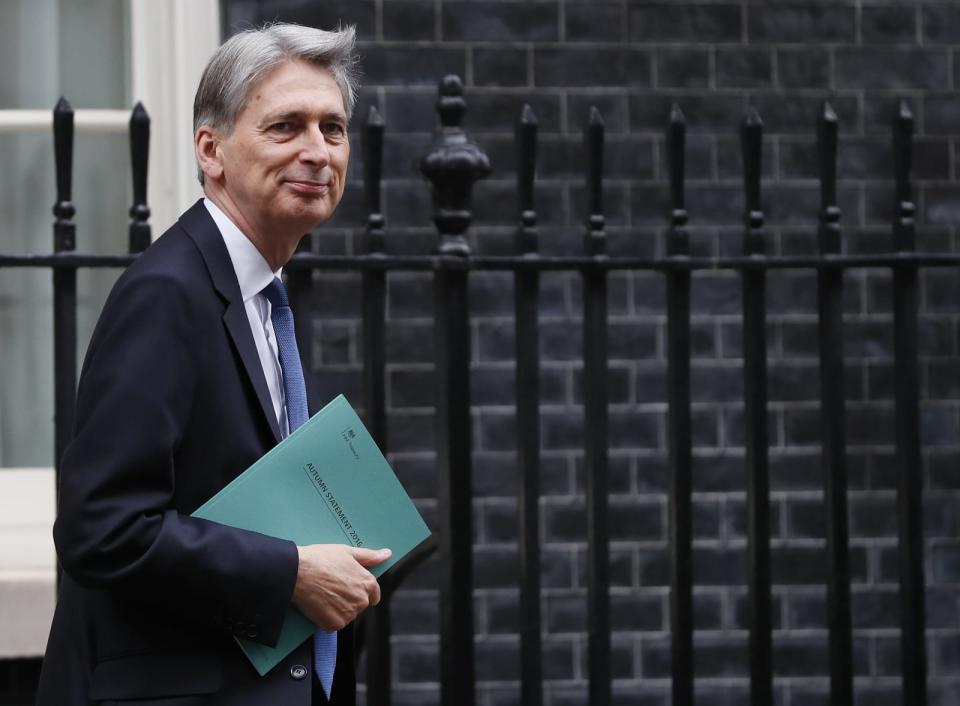EVs, 5G and fintech: How the Autumn Statement affects UK tech
Everything you need to know.

Another Autumn Statement, another set of promises that may or may not improve the lives of British citizens. Amongst the usual tax and welfare modifications, chancellor Philip Hammond announced some new policies that will affect the technology, science and transport industries. Most of them are bundled in the new National Productivity Investment Fund (NPIF), a long-term project designed to make the public more efficient in the workplace, improving the UK economy and people's work-life balance in the process. In total, the government says it will spend an extra £23 billion through the fund, starting in 2017/18 and ending in 2021/22.
For starters, an extra £4.7 billion will be spent on science and research. The government says it will equate to an extra £2 billion every year, or an increase of 20 percent to total R&D funding. The additional money will, in part, go towards an "Industrial Strategy Challenge Fund" supporting collaboration between UK researchers and businesses, similar to how DARPA (Defense Advanced Research Projects Agency) operates in the US.

Chancellor of the Exchequer Philip Hammond. Credit: AP Photo/Kirsty Wigglesworth.
There will also be £1 billion -- of which £700 million will come from the new NPIF -- dedicated to new fibre broadband and 5G connectivity. According to the treasury, it'll be broken down into three parts; a £400 million "Digital Infrastructure Investment Fund," matched by the private sector to improve fibre access over four years; a new, 100 percent business rates relief for new fibre installations over five years (starting in April 2017), and a "co-ordinated programme" of integrated fibre and 5G trials.
"This will bring faster and more reliable broadband to homes and businesses across the UK, boost the next generation of mobile connectivity and keep the UK in the forefront of the development of the Internet of Things," the treasury said in its Autumn Statement.
As part of the NPIF, the government will also be supporting electric and low-emission vehicles. An extra £390 million will be spent in total, covering £80 million for electric charging points and £100 million to test and develop the infrastructure needed for driverless cars. Around £150 million will be spent on public transport too, namely through 550 electric and hydrogen buses and new efforts to reduce the emissions produced by existing buses and taxis. As an extra incentive to go green, the government is offering "100 percent first-year allowances" to companies investing in electric charging stations, starting today until March 2019.
The final measure is a promised £500,000 per year for financial technology startups. London is known for its "fintech" community and the government wants to build on that reputation by creating fintech "specialists" and envoys. In addition, it's commissioned an annual 'State of UK fintech" report which will attempt to summarise key trends and inform would-be investors. As always, much of the Autumn Statement is vague and lacking detail. Today's speech was a statement of intent and it'll be some time before we get more detailed plans from the government.

